BBC again fails to provide context to ‘starving Gaza baby’ photos
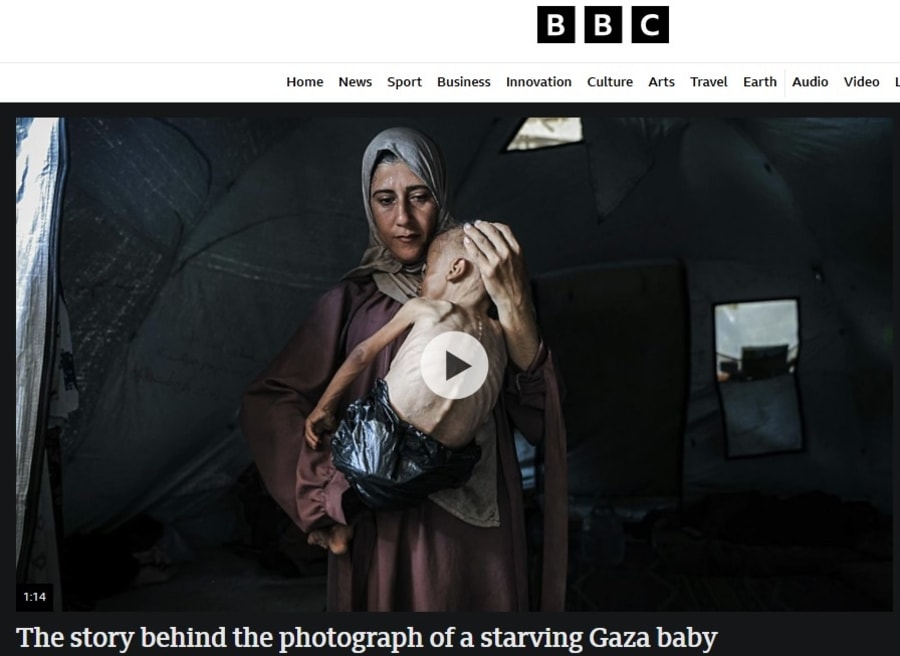
Yesterday we documented the BBC’s use of a photograph of a child – then in the Gaza Strip – with an undisclosed underlying genetic medical condition in order to promote the narrative of starvation:
Visitors to the BBC News website and other platforms in recent days cannot have failed to notice another image which has been promoted in multiple reports, including the following:
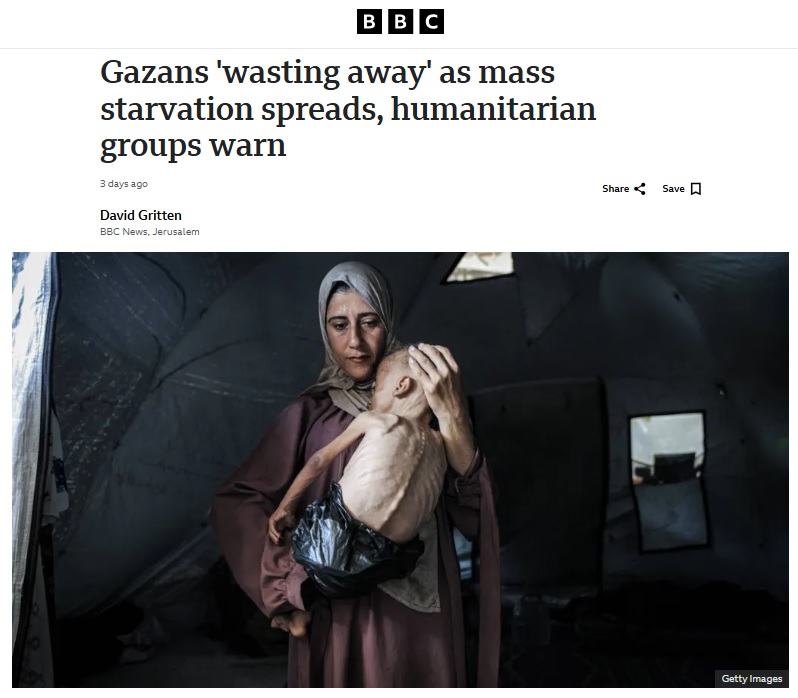
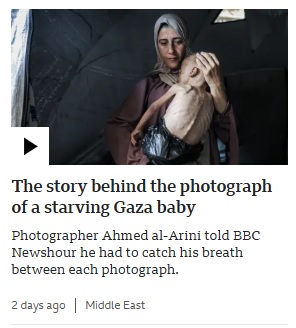
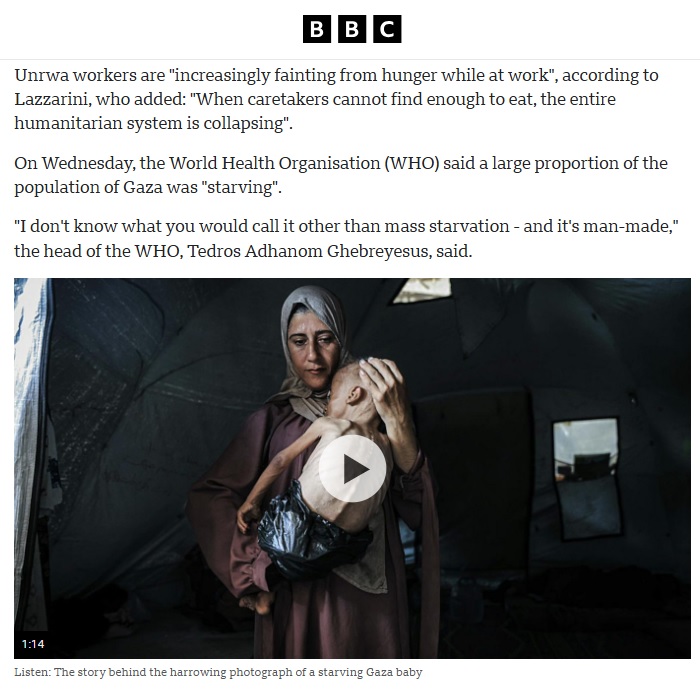
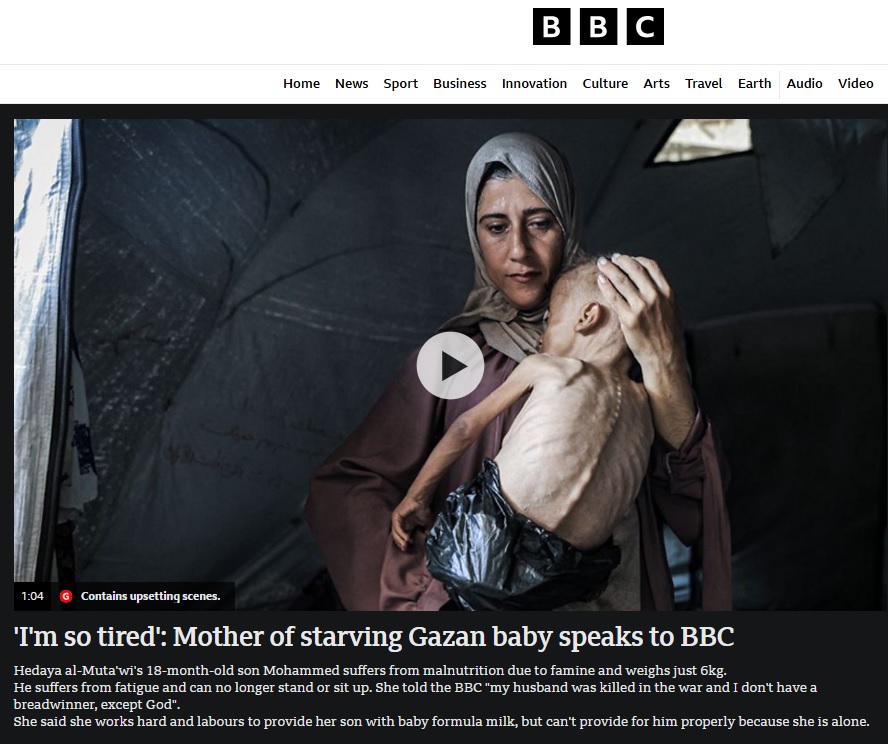
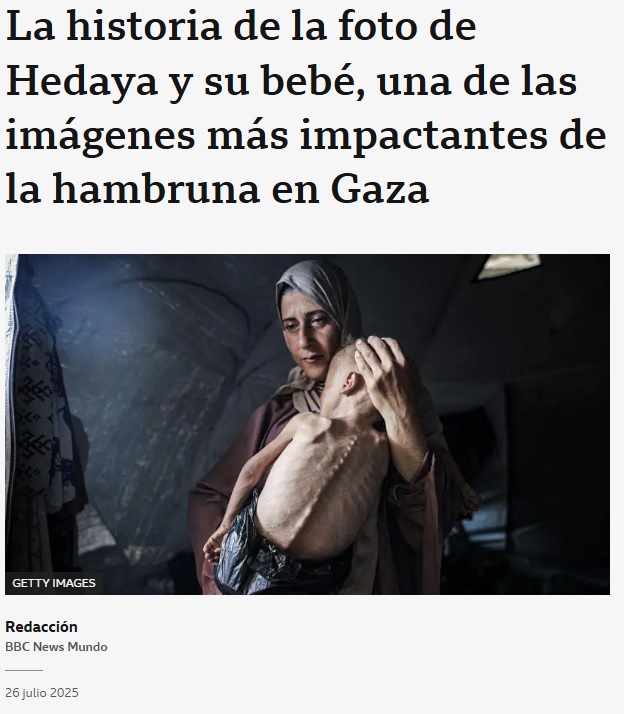
The photographer who took those pictures – Ahmed Jihad Ibrahim al-Arini – works for Turkey’s state-run Anadolu Agency, which published that and other images from the same photo shoot on July 21st. More on al-Arini’s “particular viewpoints” can be found here. Getty Images has a similar photograph credited to the same photographer and from the same date on its website.
In addition, Getty Images also has photos of the same mother and child credited to a different Gaza Strip based photographer – freelancer Omar al-Qattaa – and dated July 24th. Al-Qattaa’s photographs include pictures showing another – apparently healthy – child in the background.
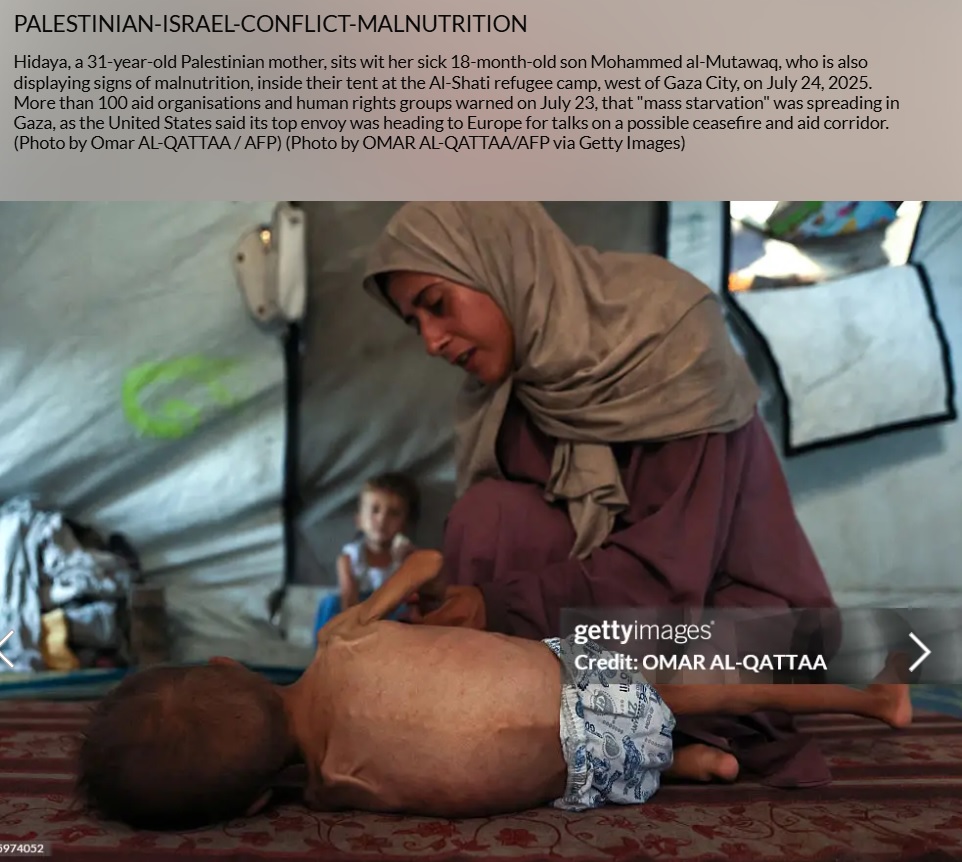
As noted by Eitan Fishberger, a CNN report stated that “Mohammed suffers from a muscle disorder”.
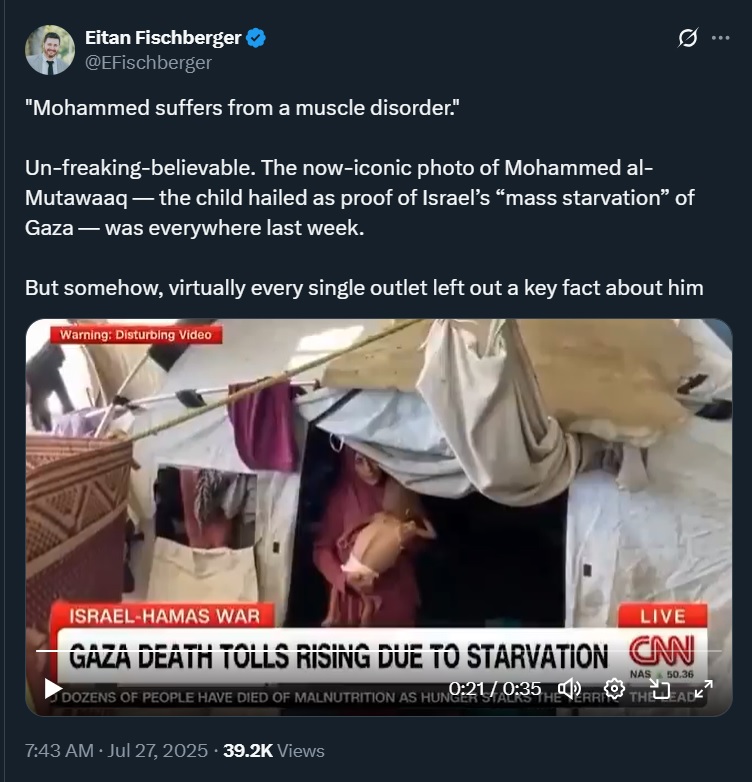
David Collier has more details on that and other aspects of the story:
“A medical report issued in May 2025 by the Basma Association for Relief in Gaza states that Mohammed, has been diagnosed with cerebral palsy – a group of neurological disorders affecting movement, muscle tone, and posture. The report notes that Mohammed suffers from hypoxemia (low oxygen in the blood), possibly linked to a suspected genetic disorder inherited in an ‘autosomal recessive pattern.’
There is no argument here. I have seen a copy of this report (but obviously won’t produce in full here a child’s medical diagnosis). It was signed by Dr Saeed Mohammed Al Nassan on 20th May 2025.”
Let’s take a look at what the synopsis of the BBC’s filmed interview with the child’s mother tells its audiences: [emphasis added]
“Hedaya al-Muta’wi’s 18-month-old son Mohammed suffers from malnutrition due to famine and weighs just 6kg.
He suffers from fatigue and can no longer stand or sit up. She told the BBC “my husband was killed in the war and I don’t have a breadwinner, except God”.
She said she works hard and labours to provide her son with baby formula milk, but can’t provide for him properly because she is alone.”
During that filmed report the mother (via translation) states:
“He suffered from hypertonia [stiff muscles – Ed.] and I was giving him physiotherapy sessions. He became able to sit down and stand up like normal children.”
Nevertheless, the BBC’s ‘trusted local journalists‘ in the Gaza Strip failed to provide any further information concerning the child’s underlying medical conditions.
Obviously children with existing disorders are more likely to be adversely affected by food insecurity. But the BBC simply states that Mohammed “suffers from malnutrition due to famine”, without providing any explanation of his underlying medical condition.
Instead – and as we see above, not for the first time – the BBC has manipulatively used context-free images of a disabled child to promote its own chosen narrative of starvation and famine in the Gaza Strip. That is not journalism; it is propaganda.
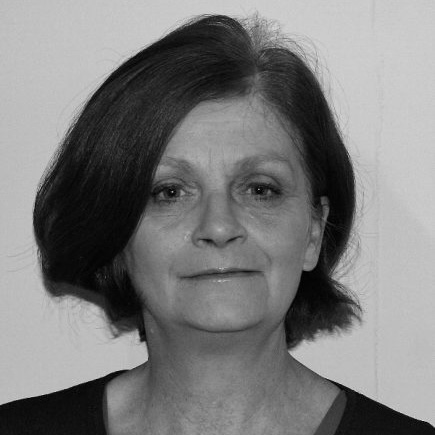
Hadar Sela was born in the north of England and has lived in Israel for over three decades. She has a special interest in the influence of the media on the British public’s perceptions of the Middle East and the Islamist networks operating in the UK and has written pre-emptive reports on several anti-Israel campaigns, including the flotillas and the Global March to Jerusalem in March 2012. Hadar’s work has been published in the Jerusalem Post, The Algemeiner, The Commentator, MERIA Journal and at Harry’s Place, among others.













